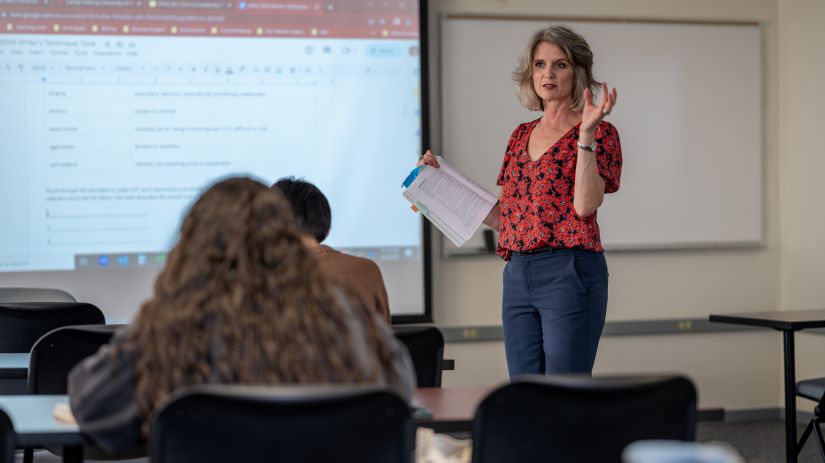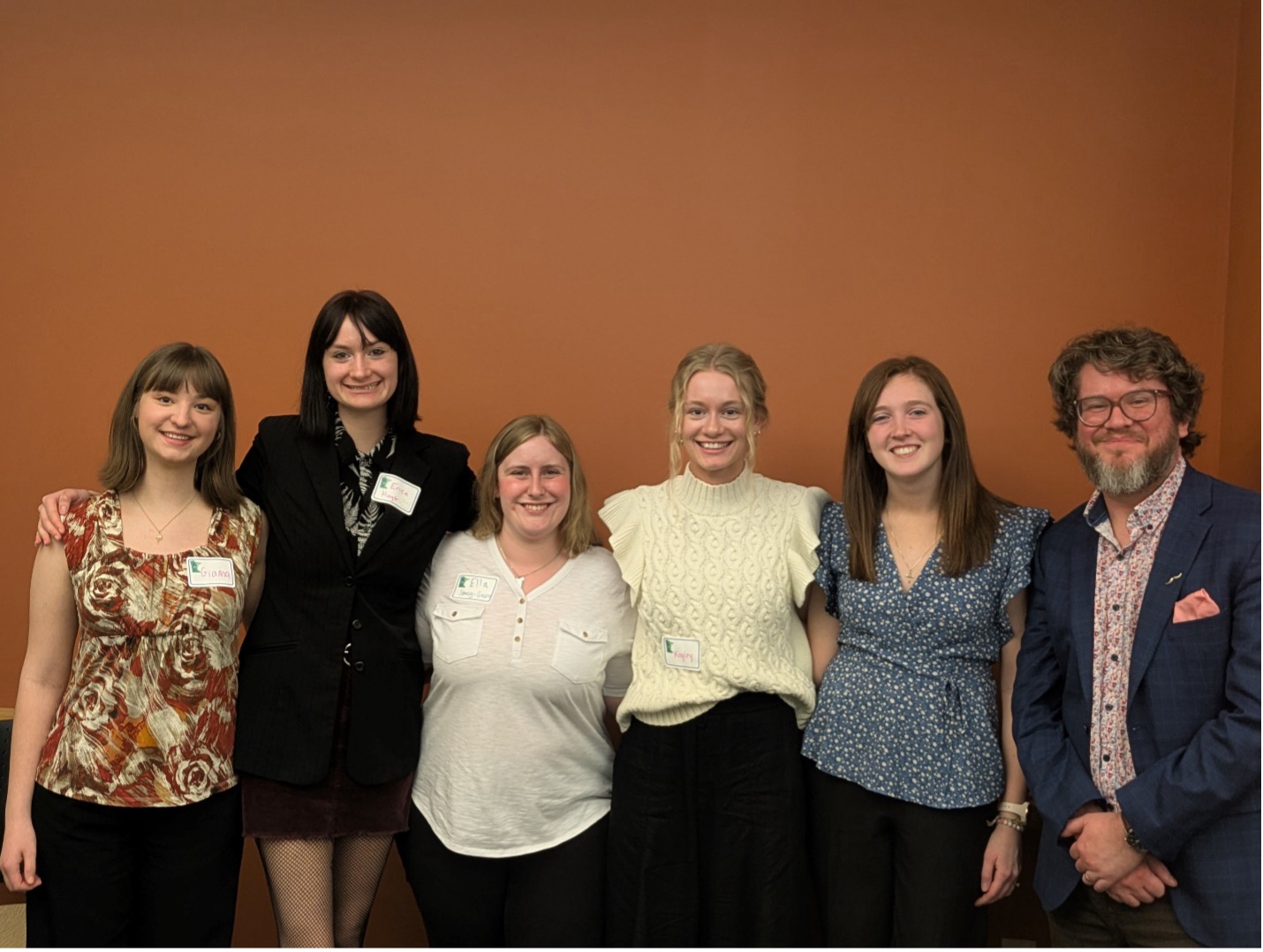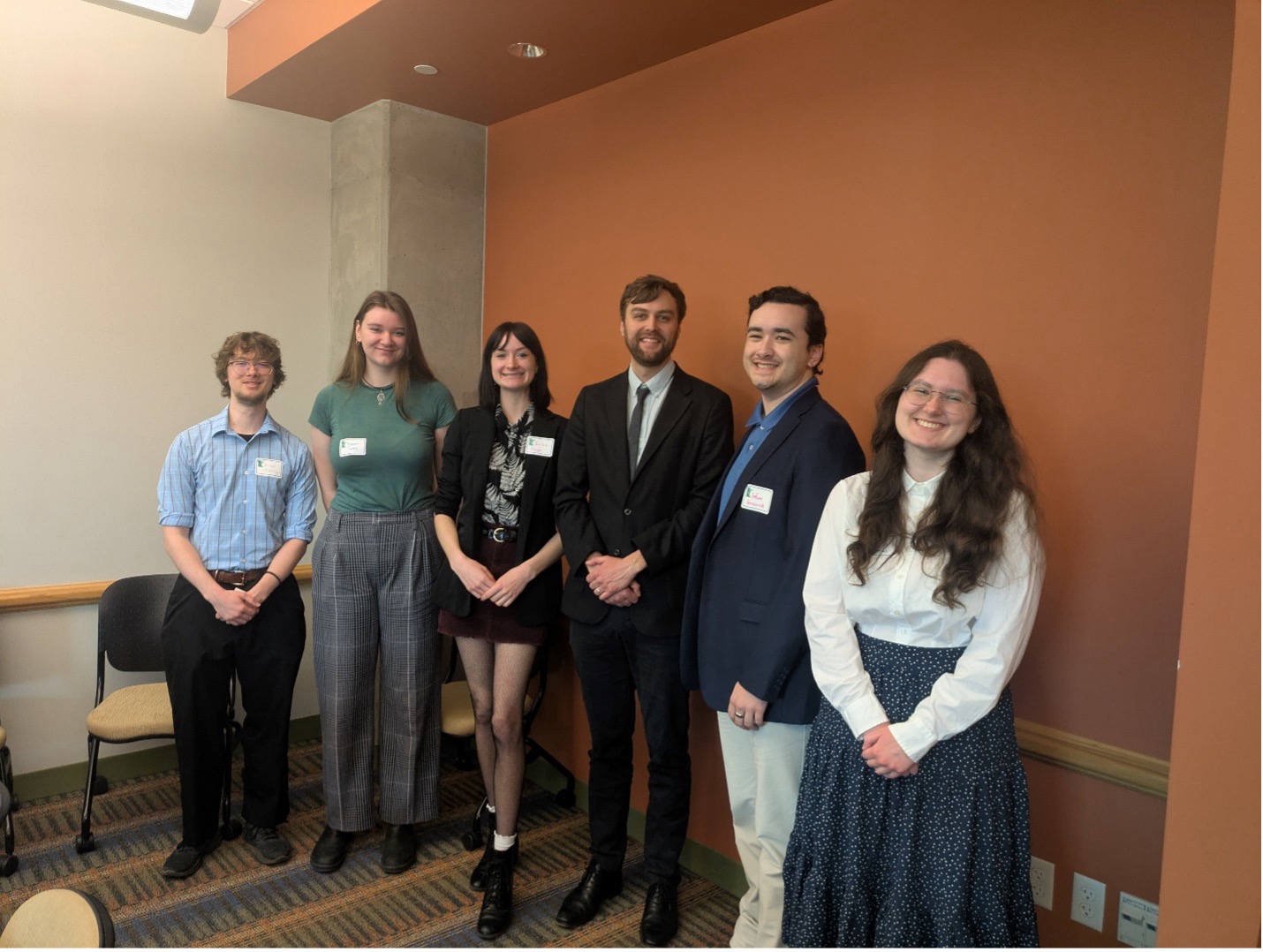MnWE 2025: Strength in Unity
by Adam Jenkinson, English major
While students in past generations were faced with their own socio-economic challenges to overcome, today’s bright young minds continue to recover from the loss and isolation caused by the COVID-19 pandemic, all while living under an administration that seeks to dissolve their very identities. In a social and political climate that brings uncertainty and stress, it is of the utmost importance to build a sense of community in our academic institutions. With this purpose in mind, MnWE 2025 strived to connect university students, faculty, and scholars through plenaries, roundtable discussions, and constructive workshops in an inclusive environment. Such an amalgamation of inquisitive individuals sparked insightful, fascinating discussion between academics, providing a sense of unity that is essential in turbulent times that seek to divide us. MnWE 2025 provided its attendees with a place to exchange ideas and foster a sense of unity that exceeded the expectations of its mission statement, strengthening ties between scholars from a variety of backgrounds, experiences, and worldviews.
Technology’s ceaseless evolution continues to rapidly change the landscape of all classrooms, as advanced AI’s sudden emergence sparks endless debates on academic integrity. The use of AI in classroom settings is a highly contested matter across the nation, and several discussions debating its use were conducted in the roundtable discussions. Most discourse surrounding AI in educational settings was negative, as its widespread use as a tool to cheat has plagued universities in recent years. While most attendees saw AI as a means to easily generate tone-deaf, unoriginal work that is also detrimental to the environment, the benefits of AI were lauded by those who were able to successfully implement such technology in a way that
benefited their classrooms. For example, one scholar from Kazakhstan claimed that ChatGPT allowed her to overcome language barriers in her writing, as it was able to aid her in translating her native language to English while she was submitting research studies. A professor from St. Cloud stated that AI image generation programs such as Gemini or Dreamina allowed him to add visual aids that were specific to the material he was teaching, as no relevant images were available online. Despite these positive examples, many of the student speakers displayed a fear that AI will one day replace human creativity, and mediums such as art and writing will fall to a machine that is incapable of passion or understanding its audience. These discussions displayed the desire to retain our humanity in creative fields, despite our flaws, and often relegated AI to complete tasks that do not require human thought to reach their full potential. While the benefits of AI were acknowledged, the majority of students and professors still believed it to be a tool that enables plagiarism and robs students of the chance to develop as creatives. Despite the minor disagreements on its value in a classroom setting, those on both sides of the issue engaged in polite discourse that validated each other’s perspectives and nurtured an environment that was committed to learning from one another.
An oft-overlooked topic of discussion was the isolation felt by those who have immigrated to the United States in pursuit of higher education. English is taught differently in non-native speaking countries, as the group of scholars from Kazakhstan stated that a heavy emphasis was placed on grammar and punctuation when they were learning the dialect in grade school. While this is beneficial for submitting papers, reports, and essays, it does little to prepare a student for the complexity of social interactions found in the United States. One student proclaimed that much was “lost in translation”, as our use of indirect language to convey meaning was very unfamiliar to her. A cardiologist from Kazakhstan cited a similar issue when speaking on the difficulty of publishing her work in the medical field, as it was required to be in
English. While the emphasis on grammar and punctuation aided in making the reports appear error-free and well structured, there are certain phrases and meanings that simply cannot be conveyed in English when translating from Russian or Kazakh. A fact that many Americans fail to realize is that it is quite simple to miss small social cues due to the complexity of the English language, which can often lead to an overwhelming feeling of isolation and an inability to connect with native English speakers. Speaker and presenter Ryuto Hashimoto claimed that, despite feeling very prepared for school in the United States, he realized that adapting to the inconsistencies of the English language was an incredibly difficult task that took a toll on his mental health during his initial years at the University of Minnesota. Despite these challenges, Mr. Hashimoto was able to cultivate friendships and could rely on the faculty at the University of Minnesota to aid him through this challenging adaptation.
Professors attending MnWE 2025 offered a wide variety of techniques to reduce stress and anxiety, as well as providing resources to better the mental health of their students during these trying times. Retired professor Richard Jewell spoke on the importance of deep breathing mindfulness activities, citing the numerous health benefits one can receive after just five minutes of performing these simple tasks (it lowers blood pressure, decreases heart rate, and has a calming effect). All speakers at Saturday’s plenary shared personal experiences regarding the struggling students they have dealt with in the past in an attempt to reduce potential feelings of isolation that are more common than ever after the COVID-19 pandemic. The overwhelming consensus was that we need unity and connection between academics if we are to successfully navigate the tempestuous waters of the future, and that we are never truly alone, as there will always be university staff and fellow academics that we may lean on when we are at our lowest.
By attending a number of these plenaries, roundtables, and workshops, I was able to observe a wide variety of topics and methods of discussion between academics of all ages and
places of origin. I was able to observe powerful conversations surrounding topics such as the ethics of AI in the classroom, the difficulties of navigating language barriers for foreign students, the value of preserving human creativity and literature, and there were many discussions I was unable to attend that assuredly provided additional avenues for meaningful conversation. What I found particularly moving was that every individual present at MnWE 2025 exhibited a powerful desire to learn from each other, and used disagreements as a way to empathize with differing perspectives. The entire conference seemed to break down any and all barriers between its attendees, and procured a sense of unity that continued academic discussion long after the time slots for discussion had passed. If MnWE 2025 is even a small sample of the supportive, caring, and intelligent scholars that desire to leave the world better than they found it, the future of our nation isn’t as bleak as it can often appear to be.













